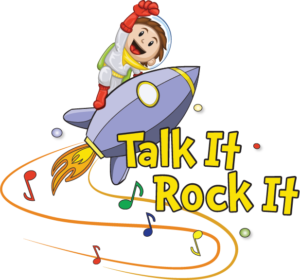
Parents have so many questions about getting speech therapy for children. Are you wondering if your child has a speech delay? Do you want to know how to help your child learn to talk? Here are some typical questions that parents ask.
What age is best for speech therapy?
Communication begins at birth. As a speech language pathologist who worked in early intervention with children from birth to 3, I believe in reaching kids early. I have learned that if parents are concerned about their child’s speech and language skills, they need to be heard. Some children from birth have disabilities that are known to result in speech and language disorders. Some of these disabilities can include Down Syndrome, cerebral palsy, cleft palate, and other syndromes. Do not hesitate to get an evaluation for speech and language development. Children of all ages can receive speech and language therapy. The goals vary, of course, depending on your child’s skills, needs, and age.
What qualifies a child for speech therapy?
A pediatric speech language pathologist (SLP) will evaluate your child for communication disorders in the areas of receptive and expressive language, articulation, social communication, fluency, oral motor skills, feeding skills, and voice. This includes how your child understands language, how he talks, and how he interacts and socializes with others. An SLP will also evaluate how your child uses gestures, achieves eye contact, pronounces words, and much more.
Typically, standardized tests are given and scored to determine whether your child is eligible or in need of speech and language therapy. In addition, an SLP may take a language sample of everything your child says in a specific amount of time. From that sample, the SLP will determine the types of vocabulary words and phrases he uses and how he uses them to communicate. The language sample will determine whether your child uses words to request, to comment, to protest, to ask for information, or to greet.
Some programs require specific scores to qualify for services. Other programs are able to depend less on scores and are able to offer services to children with mild delays. One thing to know is this: If you are concerned at all that your child has trouble understanding your directions (receptive language), struggles putting words together, is difficult to understand, or doesn’t show the ability to interact with you as you would think he should, go with your gut. An evaluation is certainly warranted. Even if your pediatrician tells you to wait, I wouldn’t hesitate to seek out a speech and language evaluation if you remain concerned.
How can I improve my child’s speech?
One of the biggest gifts of being a parent is when your child communicates with you. Communication takes on many forms. One suggestion I have right now is to think about how your child is currently communicating. Every child communicates. It may not be with words. It may be with crying, with eye contact, or with taking your hand and showing you what he wants. Be assured that he is communicating. Although we often think that communicating involves saying words, there are many things that must be in place first before we expect a child to use words.
Precursors to talking
- Does your child understand the words you say? Understanding words is essential before a child can say those words to communicate. When you ask your child to “go get your shoes,” “give this to daddy,” or “find your ball,” can he accurately complete the request with or without the need of gestures? If not, think about 5 essential commands or words that you feel are important in your child’s life. Practice them throughout your day.
- Does your child use gestures to interact with you, to get his needs met, to show you things, or to protest? The First Words Project has an excellent article that lists the essential gestures children should be able to use. These gestures often develop before words come into play. Emphasize these gestures throughout your day, showing him how to make the gesture. Model the gesture in situations where it would be helpful. Here is the article to use as a reference. Never hesitate to teach your child signs. Signs and gestures do not hold a child back from talking. In fact, they enhance a child’s ability to speak.
- Is your child imitating? Before first words come, a child typically starts imitating gestures, sounds, words, and a combination of them all. I encourage parents to use gestures and excitement in your voice when playing. You may start with animal noises, car noises, and motivating object names. Sing finger plays whenever you can. To get imitation going, please review my WE CAN TALK techniques by signing up for my free newsletter here. You will then receive a free copy of the techniques. Another excellent resource is the Talk With Me book available here.


